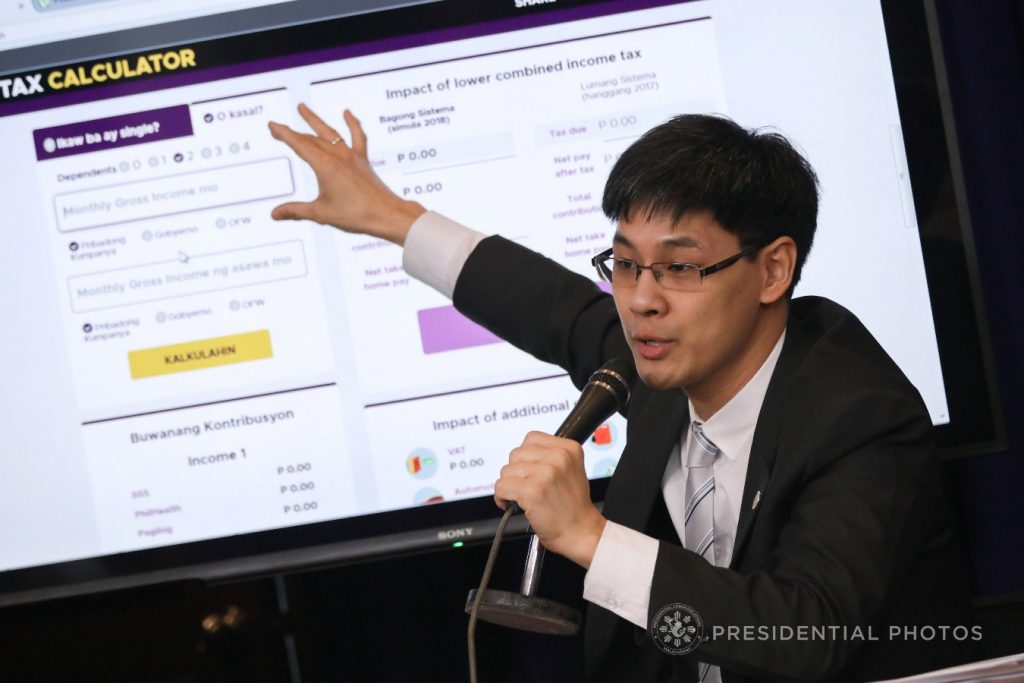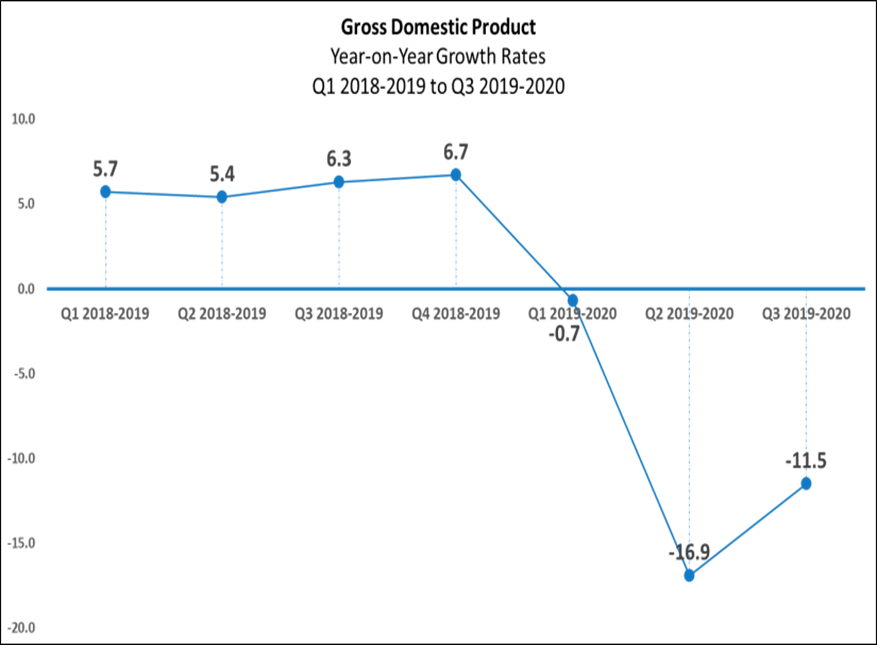
TOTO LOZANO/PRESIDENTIAL PHOTO
The Philippine economy shrunk again in the third quarter of the year, but the country can return to a “solid growth and development trajectory” by next year, the National Economic and Development Authority (NEDA) said on Tuesday,
Acting Socioeconomic Planning Secretary Karl Kendrick Chua said managing risks, instead of avoiding them, would allow the government to “safely open more of the economy and help Filipinos recover their sources of income.”
“Our experience with Covid-19 over the past several months tells us two things: first, the economy is strong enough to recover, if we enable it to do so; second, our best recourse to help the economy is to manage risks… This will also put the Philippines back on its solid growth and development trajectory,” Chua said.
Chua also noted that the smaller GDP contraction of 11.5 percent in the third quarter from a contraction of 16.9 percent in the second quarter indicated a positive route for the economy.

“The path is clearer to a strong bounce-back in 2021,” Chua said.
Chua added that the enhanced community quarantine imposed during the early stages of the pandemic in Metro Manila and nearby provinces and Cebu City, from which 60 percent of the country’s GDP comes, and public transport restrictions, were to blame for the third-quarter contraction.
The Philippine Statistics Authority said that during the July-September quarter, the following industries suffered the biggest losses: construction, -39.8 percent; real estate and ownership of dwellings, -22.5 percent; and manufacturing, -9.7 percent.
The highest growth rates were recorded in financial and insurance activities, 6.2 percent; public administration and defense, compulsory social activities, 4.5 percent; and agriculture, forestry and fishing, 1.2 percent.
The country is on the third phase of its National Action Plan (NAP) against Covid-19, which officials said would not only focus on public health but also tackle measures on how to revive the economy, in coordination with the NEDA.
The signing of Bayanihan 2 into law, as well as the passage of the 2021 General Appropriations Act, would provide the country with tools necessary to rebuild the economy, NEDA’s Chua added.
The country has recorded 399,749 Covid-19 cases as of Nov. 10. John Ezekiel J. Hirro